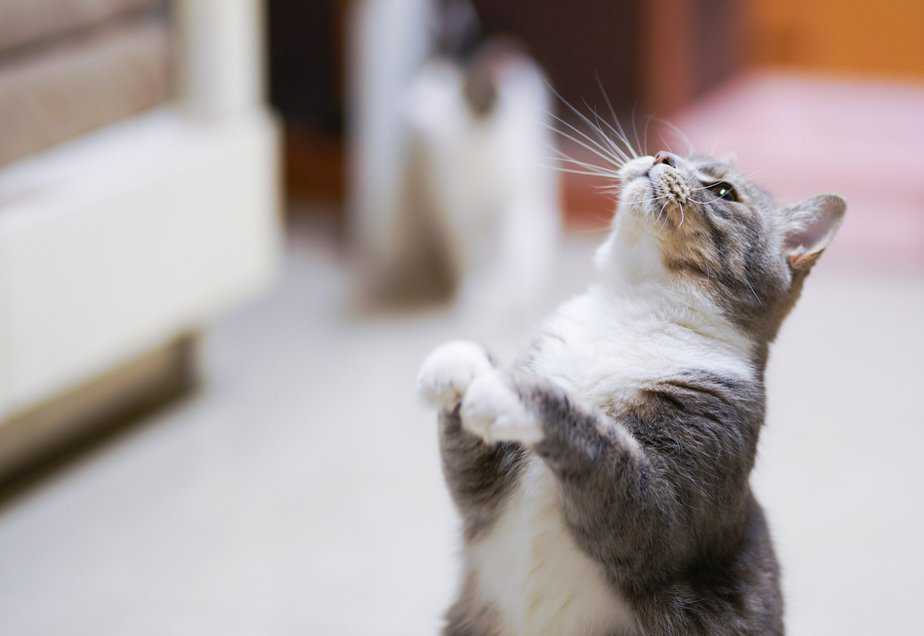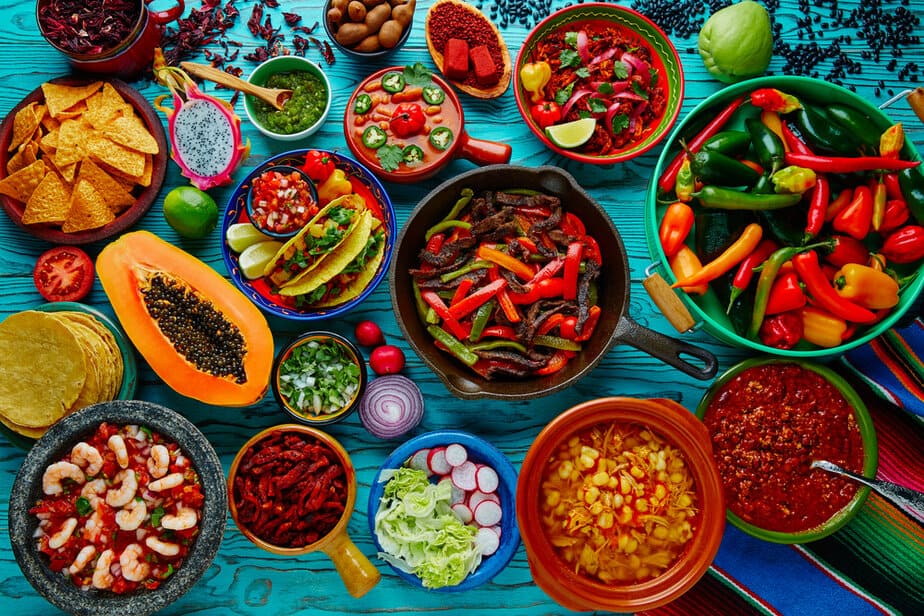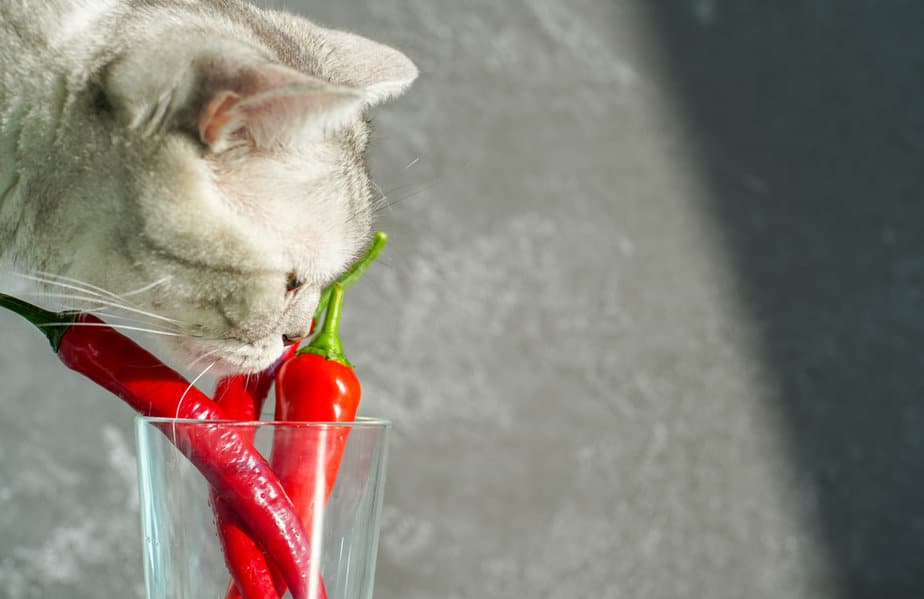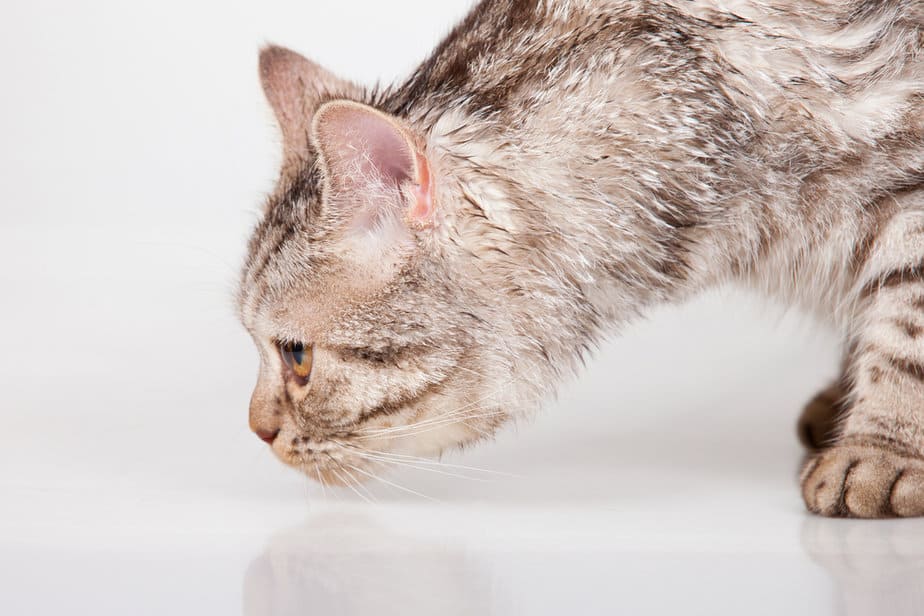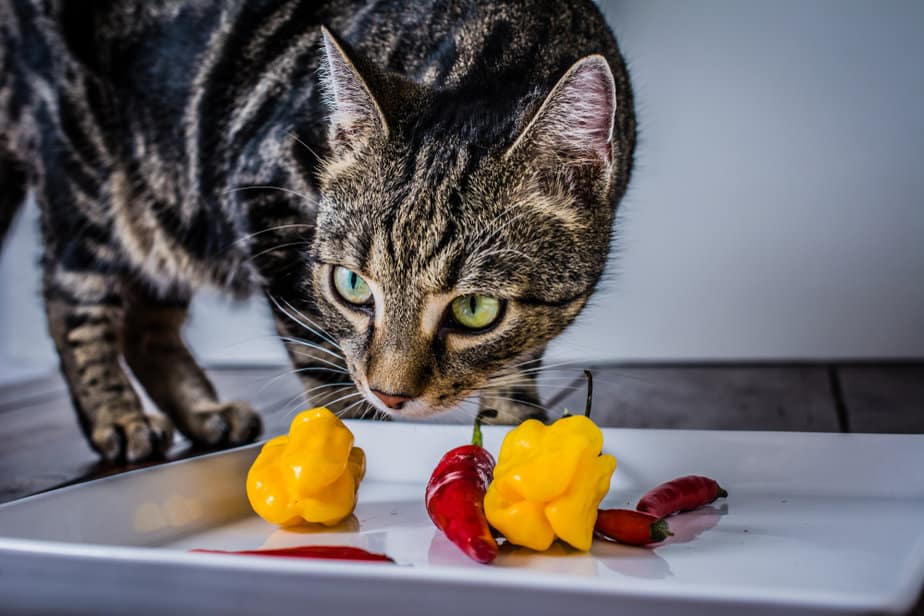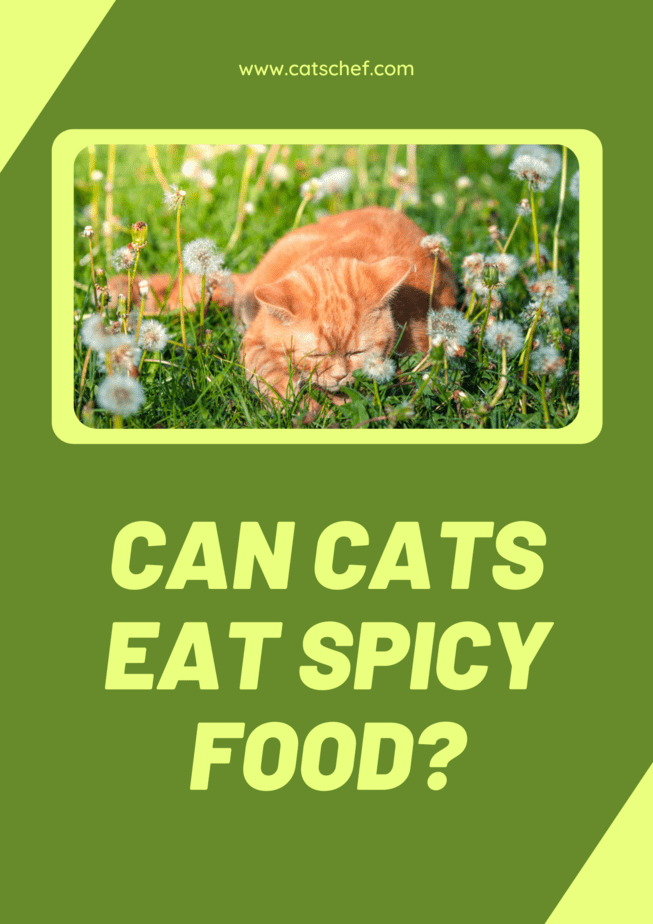📖 Table of Content:
You just got home from grocery shopping and your cat started sniffing around. She reached for that fresh jalapeno you put on top, which now has you wondering: Can cats eat spicy food? Time to find out.
Do you like to spice up your pasta with some spicy salsa? Do you like to lather your bread with a generous layer of garlic butter? Maybe you prefer hot sauce in your food rather than a mild one? Is chili in all forms your favorite spice?
Based on the fact that you’re reading this right now, I can safely conclude we’re on the same team. There’s nothing better than feeling that buzz on your tongue. It makes my tastebuds feel like they’re dancing!
When you think about it, there are a lot of different definitions for spicy food. Some will define it as food that has a strong, aromatic flavor. Others may tell you that cinnamon rolls are spicy. Both are true, in fact.
It doesn’t automatically mean that food has to be savory to be considered spicy. Anything that has some specific spice as the main ingredient can be called spicy.
However, in this article, we’ll concentrate solely on savory spicy food. We’ll establish some ground rules when it comes to your adorable feline and feisty menu items.
So, can cats eat spicy food?
No matter how much she begs for it, I’m afraid it’s a hard NO. Cats cannot eat spicy food. As simple and as complicated as that. Let’s get the ball rolling and figure out why I had to disappoint you straight from the beginning.
What happens when your feline eats spicy food?
Your favorite cuisine may be Mexican, Indian, or Thai, and I bet you’d give anything to have your favorite meal right now. Unfortunately, it’s not recommended for cats to eat spicy food. At all.
Most of our spicy food contains capsaicin, the compound that can be mostly found in different kinds of peppers we’re using, like jalapeno or chili peppers. Surprisingly, you can find it in oregano, cinnamon, cilantro, and many other spices too, albeit in smaller amounts.
You know how you sometimes get a runny nose and quickly wipe away that tear you hope no one saw? That can happen to your four-pawed baby as well.
As soon as she bites that chili pepper, for example, the capsaicin is released. She’ll definitely feel the fire, even though her taste buds won’t acknowledge it as something safe or dangerous.
Felines will register this flavor as something that causes pain. Therefore, their mouths will get watery, since their primary instinct will be to wash the capsaicin away.
Naturally, in dangerous situations, the fight-or-flight reaction kicks in. That’s when your furball will decide to either spit that spicy bite out or swallow it. The second one can lead to more uncomfortable situations.
When cats consume spicy food, they easily get an upset stomach. Their digestive system gets inflamed and this causes vomiting. Also, their mouth and tongue can get greatly irritated and swollen.
In some extreme cases, if your furbaby consumes a lot of fiery food, she may develop serious gastrointestinal issues. Your little feline may get diarrhea and vomit, which may lead to dehydration if it’s not treated on time.
So, make sure you always check the ingredients list if you know your cat consumed something that is questionable for her health, and consult with the vet if needed.
Can cats taste spicy food?
As you already know cats are obligate carnivores, and they will always choose meat as their preferred meal. As wild cats evolved, they never developed those specific taste buds to taste herbs, and neither did our domestic felines.
However, as we’ve mentioned previously, cats can detect spiciness to some extent. Since there are a lot of poisonous plants out there in nature, they’ve learned that bitterness is something they should avoid.
They will undeniably feel the burn and try to save themselves. To help them with this, you can strategically put some water bowls around the house. This will be great for their hydration anyway since they’re usually not so eager to drink water consciously and as often as they should.
It’s also important to mention that a lot of cats will, in fact, avoid spicy food. The smell of it may not be pleasant, so they likely won’t even want to try to taste it.
Why do some cats like spicy food?
Okay, we concluded that fiery food is not something you should share with your kitto. But, why does your crazy furball seem to like spicy food?
Why is she constantly walking around, following you in the kitchen, and begging? Don’t worry, I can provide you with some answers that may help you.
1. You’re enjoying your meal
First and foremost, you like it. Most of the time cats, tend to try whatever their owner is truly enjoying while eating. If it’s good for you, in their little heads is good for them as well.
They don’t mind if it’s well flavored or not. Their owner is eating, they want to eat it too. Period.
2. Enticing aroma
That chili con carne you ate last night smelled incredible, right? As much as the food aroma can make you turn down a certain meal, it can sure as heck make you crave it!
It’s the same with your furbaby. Most spicy food is meat-based, so no wonder that it smells heavenly to those little carnivores. That’s the main reason they’ll beg you to serve some in their bowl.
3. Food temperature
When we think of spicy food, we usually picture something that is served either warm or, in most cases even hot. And what do cats do in the wild? No, they don’t have refrigeration or pantries – they hunt.
Since their way of survival for such a long time was just hunting for the prey that they eat afterward, no wonder they like warm food. So yes, the serving temperature of these dishes is something that will be exceptionally attractive to your feline.
4. Interesting texture
Let me repeat one more time, meat is the main ingredient in these meals. They usually have a smooth texture and are delicious, chopped, and succulent.
So what’s stopping your cat from thinking that this isn’t the prey they were hunting in their dream last night? Honestly, nothing.
Can cats eat spicy chips?
No. Don’t do it. Don’t let your cat eat the spicy chips you’re munching on. It’s not recommended for felines to eat something pungent, and that goes for flavored chips as well.
No matter if it’s potato chips, hot Cheetos, nachos, or anything else spicy – it’s a big NO. Besides the danger of capsaicin and salt, none of these provide nutritive value for cats. They just occupy space in their little stomachs.
Their bodies may absorb a little bit of energy from these carbohydrates, but that’s about it. However, if your sneaky feline managed to snatch a chip that fell on the floor while you were watching TV, you don’t have to be worried too much.
Is there anything spicy that is safe for your cat?
Unfortunately, no. Those two adjectives together can never describe your cat’s meal. You have to be really careful when feeding your cat seasoned human food as a whole. In this part, we’ll quickly go through some herbs and seasonings that are especially unsafe for your pet.
Onion contains disulfides and thiosulphates, highly toxic compounds that negatively affect cats’ red blood cells. It will greatly damage them if consumed in high doses, leading to various forms of anemia. Remember, most spicy meals have onion or onion powder as one of the ingredients.
Garlic is in the same plant family as onion, leeks, and chives. These all contain the toxic compounds disulfides and thiosulphates. Just as you should be wary about onions, watch out for garlic as it’s commonly (and often subtly) included in recipes in either fresh, dried, or powdered form.
For instance, pepperoni on your pizza may sound delicious, but you can’t let your cat have any of it. Pepperoni is seasoned with garlic, onion, and other spices, making it a dangerous food for felines.
Nutmeg is a spice often used around the holidays. It contains myristicin, which can be toxic to felines. If your cat consumes just a small dose of nutmeg, she can have stomach problems, but in high doses, it can cause elevated blood pressure and even seizures.
Curry may be tempting for your furkid, but you have to make sure she doesn’t consume this spice. The traditional mixture contains various spices that can be harmful to your pet, like onion, garlic, and others.
Jalapenos or other chili peppers are inevitable when preparing delicious salsa for your meal. They are also crunchy and the right fit for your cat’s mouth. But that doesn’t mean she can eat it. No, no. All chili peppers contain large doses of capsaicin, which, as stated before, can cause severe intestinal distress for your cat.
Cinnamon isn’t necessarily toxic, but only if your feline consumes it in very small doses. That said, it contains coumarin which can cause internal damage and eventually, if not treated right, liver failure. Therefore, it’s best avoided.
Wrapping up…
Even though most human food is safe for our adorable felines, nothing is recommended in excess, and it’s highly advisable that you consult with a specialist before you do any dietary experiments on your own. You know what they say – better safe than sorry.
I’m sure that you wouldn’t want to clean up a mess if you could prevent it in the first place. So be a responsible cat owner and double-check what your furbaby can and can’t eat.
